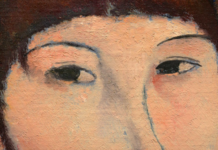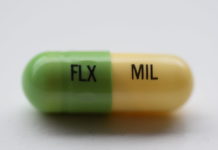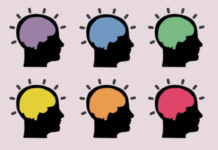The Non-Binary Brain
From Aeon: Although many misogynists justify their prejudice by arguing that men and women are biologically different, the evidence shows that our brains are neither...
How to Escape Psychiatry as a Teen: Interview with a Survivor
When I lived in Massachusetts I taught yoga and led writing groups for alternative mental health communities. While the organizations I worked for were alternative, many of the students and participants were heavily drugged with psychiatric pharmaceuticals. There was one skinny teenager I'd never have forgotten who listed the drugs he was on for me once in the yoga room after class: a long list of stimulants, neuroleptics, moods stabilizers; far too many drugs and classes of drugs to remember. I was at the housewarming party of an old friend, and who should walk in but that boy who used to come to my yoga classes and writing groups religiously. And he was no longer a boy; he was now a young man. “I'm thinking yoga teacher,” he said. I nodded. Did he remember where? “I'm not stupid,” he said, as if reading my mind. “I'm not on drugs anymore. I'm not stupid anymore.”
Antidepressants, Pregnancy, and Autism: Why Wouldn’t Antidepressant Chemicals Affect a Developing Baby’s Brain?
This week another study was published showing that SSRI antidepressant use during pregnancy is associated with increased rates of autism in the children. By my count, this is now the tenth study on this topic and it follows on the heels of previous studies – all of which found links between SSRI antidepressant use in pregnancy and autism in the offspring. Most of these studies were recently reviewed by Man, et al, who also concluded that SSRI antidepressant use during pregnancy is associated with autism in the children. So we now have numerous studies in different human populations all showing a link between SSRI use in pregnancy and autism in the children. Yet, much of the news and blogosphere focus on casting doubts about these findings. What is going on here?
Fluoxetine Not Helpful for Children with Autism
A clinical trial finds Prozac no better than placebo for improving repetitive behaviors.
Neurodiversity is Dead. Now What?
The neurodiversity movement is a public relations campaign that emphasizes the positive qualities associated with some presentations of autism—creativity, increased tolerance for repetition, enhanced empathy, and exceptional memory—while erasing or minimizing the experiences of autistics who are severely disabled.
Is The Microbiome our Puppeteer?
“My message today is that your state of gut will affect your state of mind. To have a healthy brain, we may need a...
Does My Algorithm Have a Mental Health Problem?
From Big Think: As our algorithms are increasingly being made in our own image, they are at heightened risk of experiencing "mental health problems."
"Take the...
“Cortisol Levels in Children’s Hair May Reveal Future Mental Health Risk”
The Guardian covers research out of Australia that found that levels of the “stress hormone” cortisol in the hair of 70 nine-year-old children corresponded to the number of traumatic events experienced by the child. “Childhood is an imperative and sensitive period of development, and when things go wrong it can have lifelong consequences, not just on mental health, but also on general health.”
Over Ten Thousand Unfiled Claims Against Risperdal Over Breast Growth in Young Boys
Johnson & Johnson is exposed to personal injury and product liability lawsuits over the failure to warn about Risperdal gynecomastia side effects in boys.
Publication Bias in Literature on Antidepressants for Autism
Researchers at the University of Michigan reviewed published and unpublished trials of serotonin receptor inhibitors (SRI) for the treatment of autism spectrum disorders (ASD)....
Early Brain Injury and Autism
A pediatrician writing for The Daily Beast discusses a recent study in the journal Neuron that found links between autism and brain injury during...
“Virtual Autism” May Explain Explosive Rise in ASD Diagnoses
New clinical case studies have found that many young children who spend too much screen time—on TV’s, video games, tablets and computers—have symptoms labeled as “autism.” When parents take away the screens for a few months the child’s symptoms disappear.
“MIT’s Misleading PR Headline on Autism”
Last week a headline from MIT news proclaimed “Neuroscientists reverse autism symptoms.” The Health News Review points out why this headline is misleading.
Article →...
“The Rise and Fall of the Blockbuster Antipsychotic Seroquel”
Martha Rosenberg highlights how the popular antipsychotic Seroquel is a perfect example of how direct-to-consumer advertising made billion dollar blockbuster drugs possible before side-effects...
Exposure to Antidepressants in the Womb Linked to Autistic Behavior in Mice
Researchers experimenting on mice found that exposure to fluoxetine (Prozac) in utero resulted in behaviors considered in animal studies to be analogous to autism in humans.
$1.5M Award in Child Tardive Dyskinesia Malpractice Lawsuit
A Chicago jury awarded $1.5 million to an autistic child who developed irreversible and disabling tardive dyskinesia and tardive akathisia while treated with Risperdal,...
Common Off-label Drug for Autism No Better than Placebo
The Alzheimer's drug memantine (also known as Ebixa or Namenda) is being regularly used off-label in the treatment of childhood autism, Asperger’s, and Pervasive...
D Is For Diagnosis
In this episode of BBC Radio's Four Thought, child and adolescent psychiatrist Ann York discusses the benefits and potential pitfalls of psychiatric diagnoses and shares her...
Is Autism a “Deficit” or a Super Sensitivity?
Salon has reprinted an excerpt from a book by University of California cognitive neuroscientist Gregory Hickok, in which Hickok argues that common diagnostic tests...
‘A Little Bit of OCD’: The Downside of Mental Health Awareness
From The Guardian: People often claim to experience mental health problems only to excuse their unpleasant or hurtful behaviors. This can exacerbate prejudice toward those...
Study Identifies Cause of Weight Gain From Antipsychotic Drugs
From UPI: A team of researchers from the University of Texas Southwestern Medical Center found that the serotonin 2c receptor is responsible for weight gain...
Antidepressants and Pregnancy: Who Says They Are Safe?
Depression during pregnancy is an important issue. Depression should not be ignored and depressed pregnant women deserve good treatment and care. Part of that good care, though, is providing them with full and correct information. I care for pregnant women taking antidepressants on a daily basis and too often they tell me that the only counseling they received about the medication was, “my doctor told me it’s safe in pregnancy.” This post will review the evidence in this area and address the counterarguments.
How Stigma and Social Factors Drive the Negative Health Outcomes Associated with Autism
A new study explores the interplay between social stress and quality of life for individuals self-identified with high-functioning autism.
Exposure to Antidepressants in the Womb Linked to Autism
Researchers, publishing in Toxicology Research, review the evidence that antidepressant exposure in the womb is linked to autism spectrum disorders (ASD) in humans.
Autistic People Are Breaking Stereotypes And Connecting Online
From BESE: While several recent articles and blogs have argued that social media can have a negative impact on our mental health, many members of the...





















